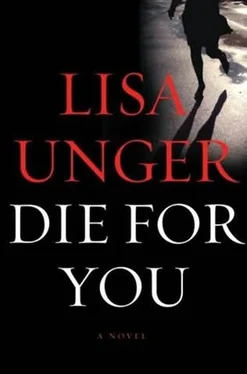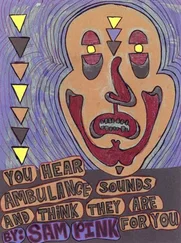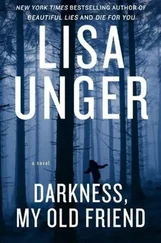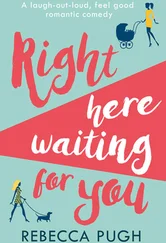She heard the high, light tone of her son’s voice and the low rumble of her husband’s. Then she heard the television go on. A minute later she smelled toaster waffles. The day was beginning without her. She felt a wave of gratitude that she had most of her Christmas shopping done. She’d wrapped all the gifts and driven them up to her mother’s in Riverdale last week. That’s where they’d spend Christmas Eve and open gifts on Christmas morning. Soon Brown was barking to go out and, through the wall, she heard Emily yelling at him to be quiet.
She’d gone into the guest room to check on her sister last night and found Emily and Brown piled around Izzy She marveled at the two of them, her daughter and her sister, how alike they were, how much she loved them, how the same fierce urge to protect them was a fire in her center. Tough talk, bad attitudes, strong opinions, steely expressions-all of it just hard armor to protect fatally delicate centers.
She heard her phone vibrate in the drawer by her bed and she quickly reached for it. The screen read: 1 Text Message . She flipped the phone open.
Can I see you today? I’m desperate . She felt a powerful wash of excitement and fear.
She answered: Family emergency. I don’t know. I’ll try .
At a light knock on the door, she slid the phone under the covers, closed her eyes.
“Mom?” said Emily, poking her face in. “I can’t find my black leggings.”
“Okay,” she said, fake groggy. “Coming.”
“Izzy’s gone,” said Emily. Her face was still but her eyes were bright with worry.
“Izzy will be okay,” Linda said, sitting up and opening her arms. Emily came to her quickly and let herself be embraced. “We’ll take care of her and she’ll be fine.”
“But what about Marcus?”
She released a sigh and considered lying, offering some platitude. But Emily was too old and too smart for that. Lies would just make her more afraid. She took her daughter’s face in her hands. Emily looked so much like Izzy that Linda felt as though she were speaking to both of them.
“The truth is, Em, we just don’t know what’s happening right now. The police are helping us and we’re going to figure everything out. Whatever happens, we’ll get through it together. That’s what a family does.”
Emily leaned against her, wrapped her arms around Linda’s middle.
“I think you and your brother should go to school today,” Linda said, rising. They moved together toward the door. “We’ll come get you if anything happens.”
Emily nodded uncertainly but seemed okay with it. Sending them to school would make things seem normal, which they needed. Trevor was going to bitch a blue streak; she knew he was already banking on a sick day. People generally considered her son to be the sweeter of the two children. But he was less malleable, less cooperative than his sister, more prone to defiance and tantrum.
“Your pants are folded on top of the dryer,” Linda said, patting Emily on her bottom. “Go get ready.”
She heard her phone buzz again under the covers, but Emily seemed not to notice as she loped from the room. “I want jelly on mine, Dad!” she called, exiting and shutting the door behind her. Brown started barking again.
Guilt, the river that runs through motherhood, threatened to rise over its banks. The day and all the misery it promised loomed like a thunderhead. She smelled the scent of coffee and figured there was no way out but through.
THE DAY MY father killed himself dawned blue and cold. I heard the hard wind rattling the windows and saw the bright sky and high cirrus clouds from my window as I woke. I looked across the room and saw my sister lying on the bed across from me. She stared up at the ceiling, her arms folded behind her head.
“I had a bad dream,” she said, knowing somehow that I was awake. She looked pale, small in her bed like the child she was.
“About what?”
“I don’t know. Something terrible.”
“Dreams can’t hurt you,” I said, only because that’s what she always told me. And she only told me that because that’s what Mom told her. She was fifteen. I was ten. But there had been no dream, I’d learn later. She’d seen him. Linda had been the one to find my father as he lay slumped in the toolshed far behind our house, the wall sprayed with his blood, the gun lying on the floor. Somehow she was the only one to hear the blast.
It woke her from a deep sleep and she drifted out the back door to find him. He was always out there building things with wood-birdhouses, dollhouses, and tiny pieces of furniture, picture frames, curio cabinets. Everyone loved my father’s work. He was always making gifts for friends and neighbors, never accepting money. My mother complained about how he wasted his time with building trinkets when the lawn needed tending and the fence repair, that his hands were splintered and calloused, rough to the touch.
Linda pushed open the door and saw him there. A cigarette still burned in the ashtray. She was surprised, had never seen him smoke. She said it was as if the rest of the scene just didn’t register. All she could think about was that cigarette and how she just couldn’t imagine him putting it to his lips, drawing the smoke into his lungs. She wasn’t sure how long she stood there.
I often imagine her in the doorway, one hand resting on the frame, the other on the doorknob. The bright full moon making her white nightgown translucent, the slim form of her body visible beneath it. She might have shivered in the cold, wrapped her arms around herself.
“Daddy, what’s wrong?”
I know he never meant for Linda or me to find him that way. We were forbidden from bothering him when he was in there. He would have expected our mother to come out raging in the morning about how he’d stayed out there all night again, and didn’t he remember he had a wife?
A fog fell over our lives. And it never lifted, not really. The contrast between our life before that day and after was so stark that it seemed like two different lives. Suicide marks you in a way that no other tragedy does-especially the suicide of a parent. And maybe the worst part about the suffering that follows is that no one ever discusses it. People feel angry when they think about suicide, the coward’s way out. As if all there is to life is the bravery to soldier on. There’s blame for the deceased who chose to throw away something to which other people desperately cling, and even for the family he left behind. Didn’t someone know how unhappy he was? And, of course, you have all those thoughts yourself, even and maybe especially as a child. The Connelly sisters are lovely and smart , my father always used to say. Just not lovely or smart enough , right, Daddy?
People step away from the topic, avert their eyes from you. I don’t remember being taunted at school. The other children just seemed repelled by me, kept distance between us. As a child, this has the effect of adding shame to the powerful brew of grief, rage, and sadness. There are no platitudes to offer those grieving a suicide. No one says, “He’s in a better place now” or “The Lord works in mysterious ways.” He wasn’t taken by accident or illness. He didn’t allow himself to be part of God’s plan. In the ultimate act of rebellion or surrender or just irreverence, he left.
I remembered a particular feeling I had in the year after my father’s death. It was a strange lightness, a drifting feeling. Zero gravity. I understood that everything that once seemed solid and immovable might just float away. And that this was a truth of life, not an illusion in the grieving mind of a child. Everything that is hard and heavy in your world is made of billions of molecules in constant motion offering the illusion of permanence. But it all tends toward breaking down and falling away. Some things just go more quickly, more surprisingly, than others.
Читать дальше












